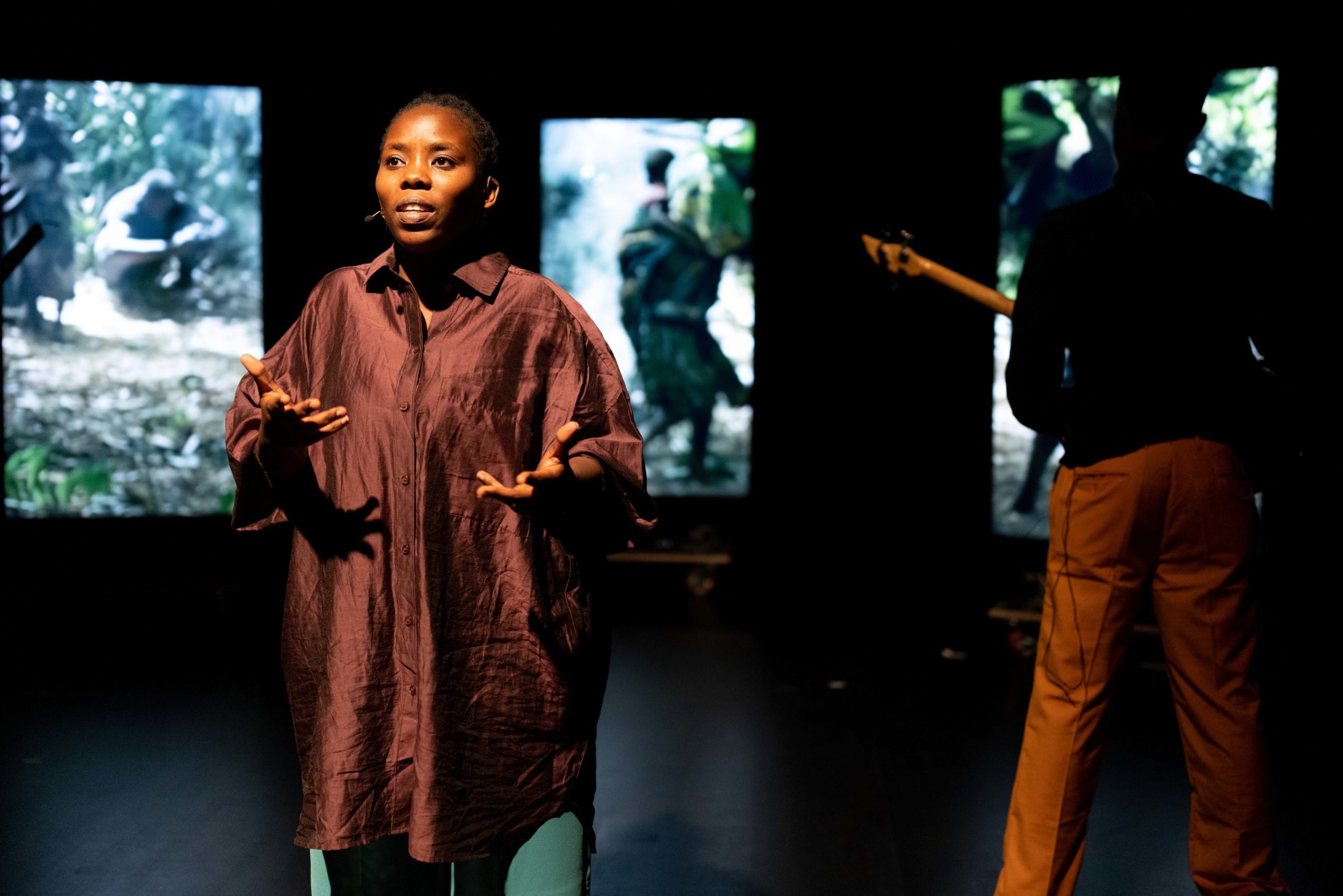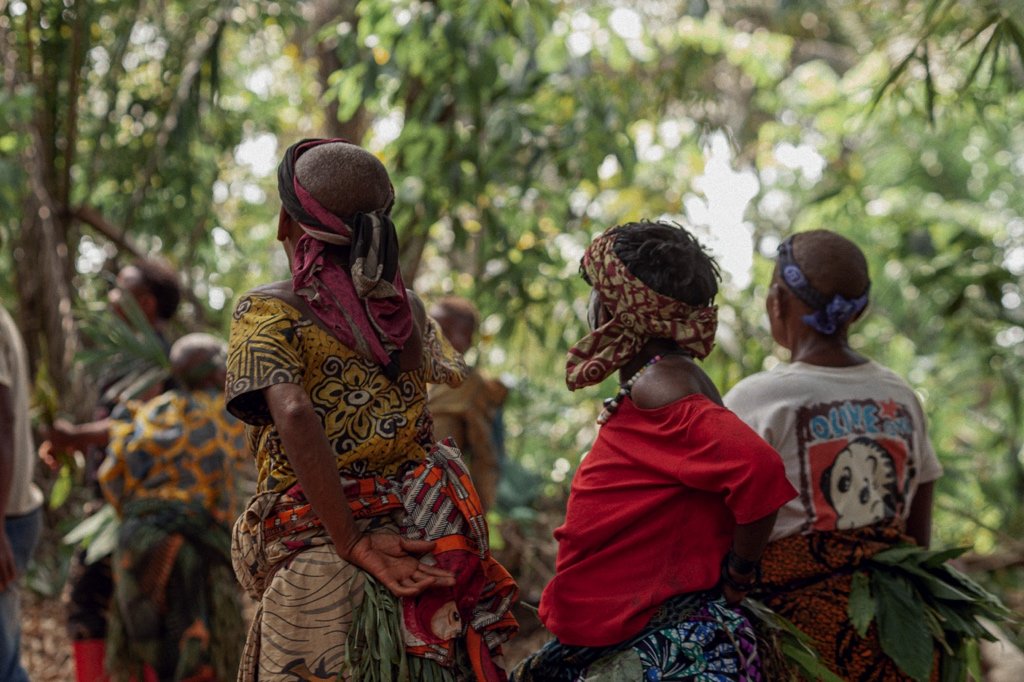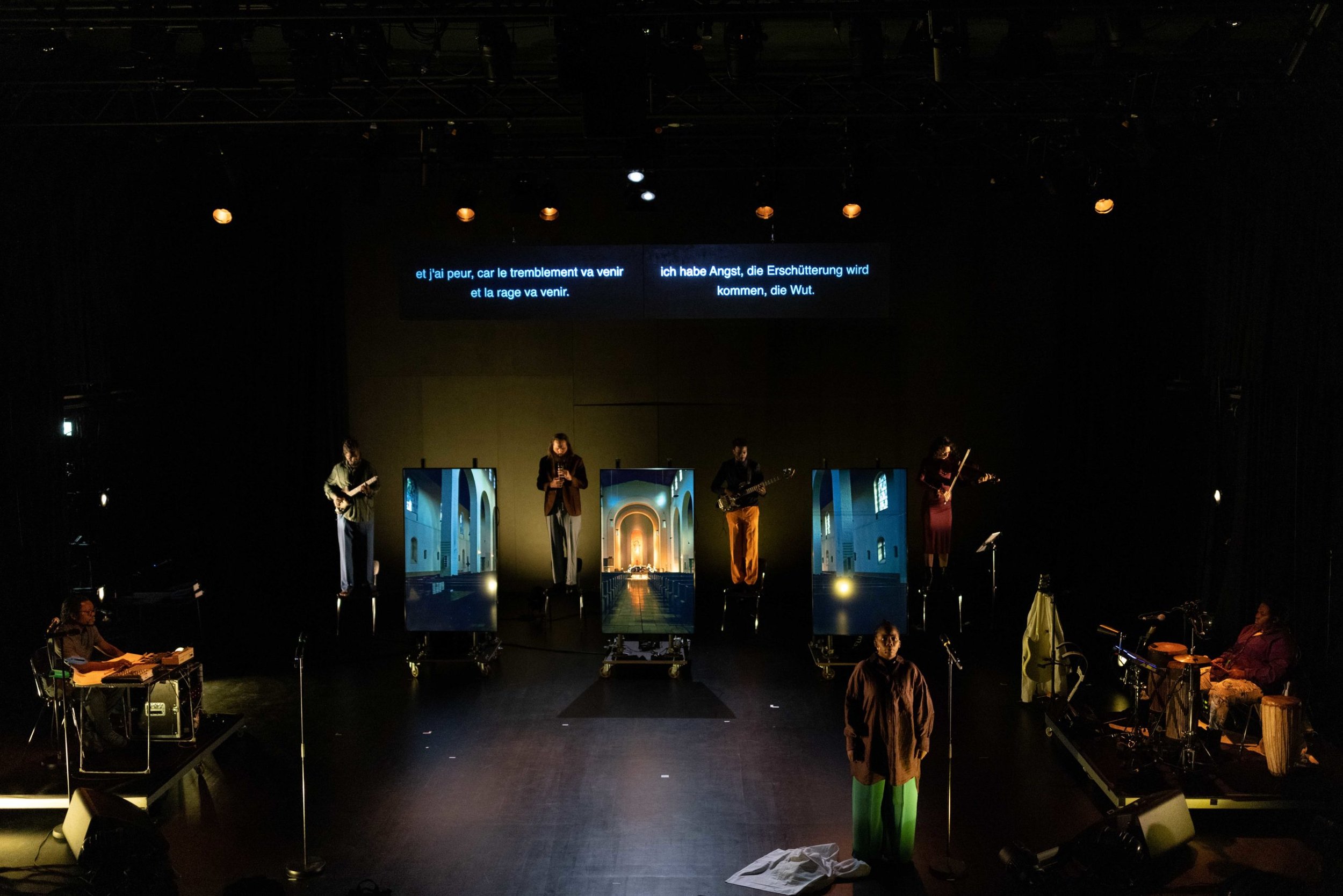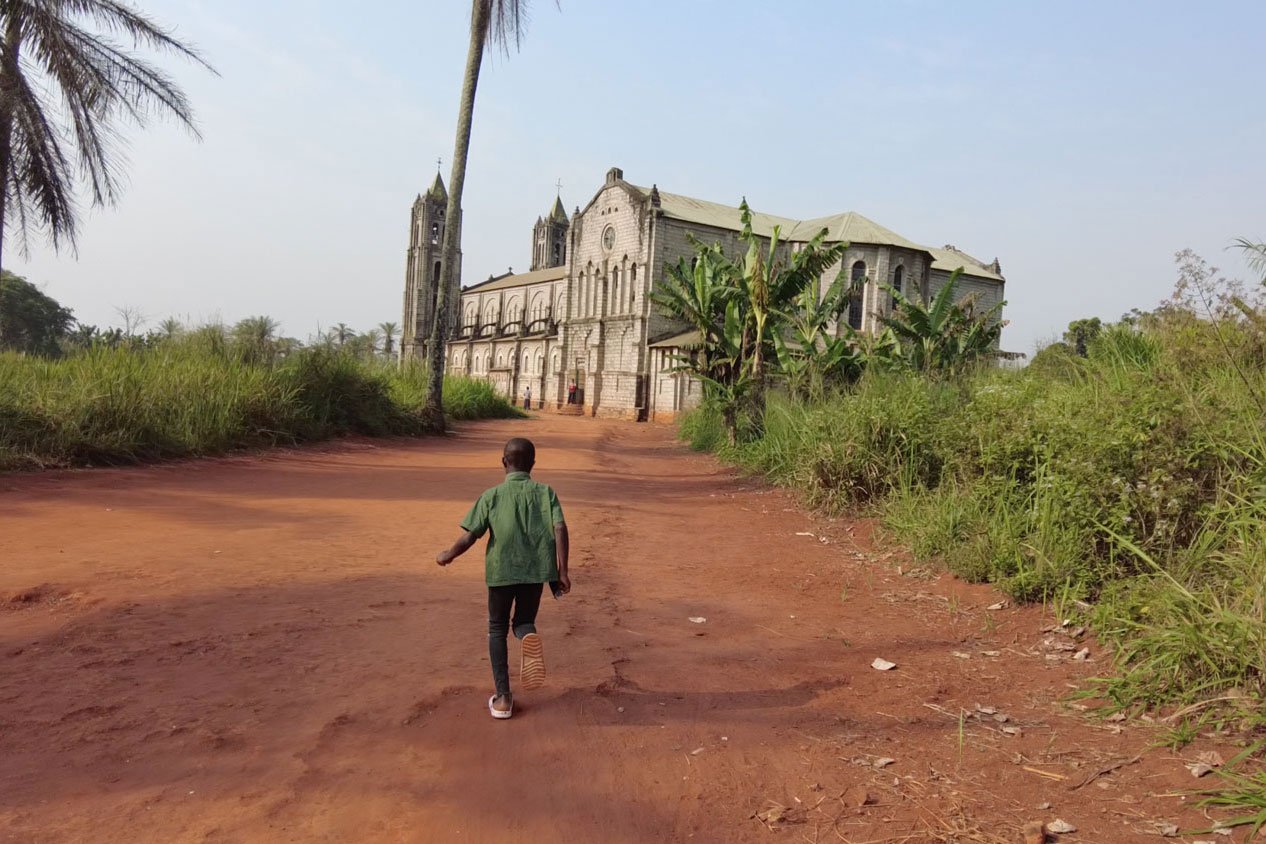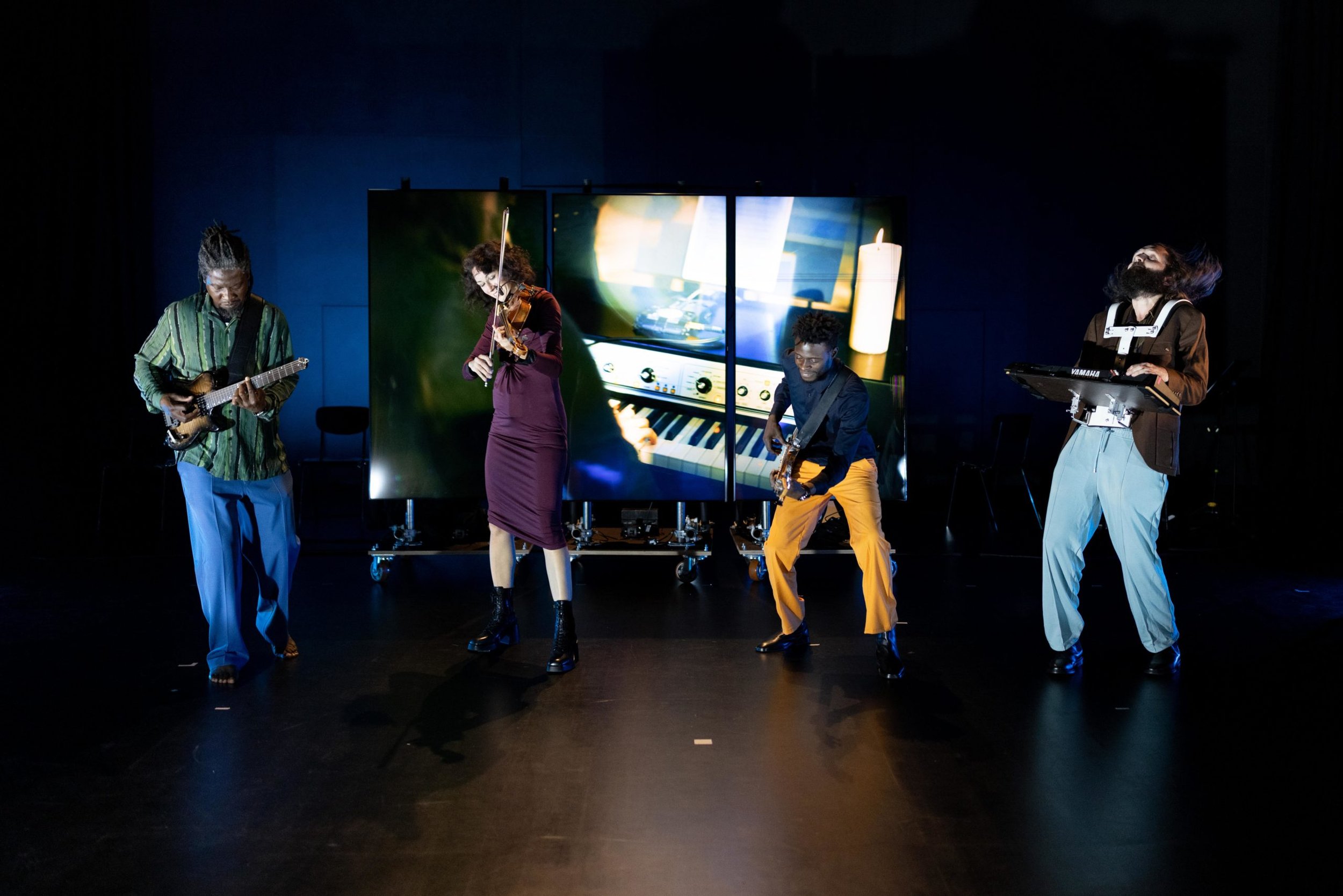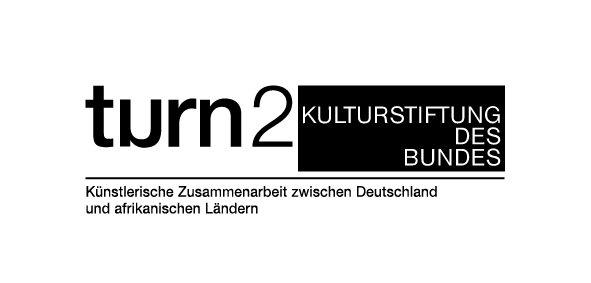The Ghosts Are Returning
In "The Ghosts Are Returning", GROUP50:50 tells the story of seven "pygmy skeletons" that a Swiss doctor brought from the Congo to Geneva in the 1950s. The artists from Congo, Switzerland and Germany travel to the equatorial forest to meet the nomadic Mbuti people who are threatened by illegal logging and driven out of their territories. Singing and dancing with them, they develop a ritual to allow the seven spirits to find rest. The result is a multimedia musical theater piece about (neo)colonial crimes, death and mourning.
"GROUP50:50 takes musical theatre back to the source, the ritual, they are out to reconcile and satisfy the spirits, and save the forests and their indigenous inhabitants. A new dramaturgy has emerged from conversations with them, a jointly found, sung, played narrative, an equal interplay, an incredibly good, wise and thoughtful, healing concert, so that one not only understands but also feels." (Wiebke Hüster, FAZ)
"One almost has the feeling that a kind of symbolic or formal reburial is taking place here, leaving behind the justified anger, finding a gesture of liberation and beauty - which should not be confused with false reconciliation." (Martin Krumbholz, Nachtkritik)
"The Ghosts Are Returning is a brilliantly moving evocation of ghosts, a joyful requiem that can lay the groundwork for a new constructive dialogue." (Corinne Orlowski, WDR3)
"What happens on stage seems to be a suitable method of therapy: a communal search for healing with the help of music. In this respect, music also plays the main role in this cheerful, grandiose concert, a mash-up of styles and instruments in which E and U, folklore elements and classical canon complement each other to form a new whole. Overcoming grief and anger - and at the end, after more than two hours, celebrating reconciliation and cohesion without hiding the wounds. Thoughts of cultural appropriation would be out of place here; the music opens up new spaces of understanding. An empathetic requiem that at the same time makes the future possible." (Dorothea Marcus, Taz)
The musicians and performers of the GROUP50:50 dedicate their work to post-documentary music theater, taking economic and political facts and transposing them into the future through dance and song. After the musical theater project "Hercules of Lubumbashi - an oratorium for the Congolese mines" (PODIUM Esslingen / Waza Art Center), they are now addressing the issue of the restitution of African cultural goods and human remains in "The Ghosts Are Returning" and are thus contributing to the current debate through artistic means.
The artistic directors Christiana Tabaro and Michael Disanka from Kinshasa and the Swiss Elia Rediger and Eva-Maria Bertschy have chosen as their starting point a fact that connects their countries of origin: in 1952, a Swiss doctor brought home seven "pygmy skeletons" from the Congolese province of Ituri (today Haut-Uele) and made them available to the University of Geneva for research purposes. Unlike other African skeletons and skulls, which to this day are preserved by the thousands in European museum archives, the names, dates and causes of death as well as the approximate origin of the seven skeletons are known.
The GROUP50:50 goes in search of their descendants in the forests of the Congo, where it meets the nomadic Mbuti people who are victims of illegal deforestation and driven out of their natural habitat, living in resistance. Do they want to recover the skeletons and therefore the spirits of their ancestors? Because in the debates on restitution, one thing is rarely taken into account: With the masks, skulls and skeletons it is also the spirits that the Europeans removed and locked away during the colonial era that are coming back. Accompanied by the Mbuti, they elaborate a ritual in song and dance for the seven spirits - in the hope that they can find peace.
Musically, the production moves between genres. It takes funeral laments from both classical and traditional Congolese music and looks at the polyphonic songs of the Mbuti, who, long before polyphonic requiems were composed in Europe, celebrated their dead with complex choirs. The result is a musical and scenic death ceremony for the seven skeletons and their spirits, with an Mbuti choir in video dialogue with the musicians and performers on stage. The multi-media musical theater piece will premiere in Germany and Switzerland in the fall of 2022 and return to Congo in 2023.
A GROUP50:50 project produced by PODIUM Esslingen and Centre d'Art Waza Lubumbashi in co-production with CTM Festival Berlin, euro-scene Leipzig, Kaserne Basel and Vorarlberger Landestheater.
Thanks to
Chef Apibo Medjedje, Missy M. Bangala, Nina Burri, Prof. Donatien Dibwe dia Mwembu, Emilio Distretti, Mwazulu Diyabanza, Virginie Dupray, Katia Flouest-Sell, Joel Fonsegrieve, Simon Heinze, Prof. Eric Huysecom, Christophe Philippe Goumand, Chriss Kabongo Monga, Feza Kayungu Ramazani, Gerschom Kinkani, Rektor der Université de Lubumbashi Gilbert Kishiba Fitula, Vincent Littau, Olivier Maloba Banza Umba, Anne Mayor, Théodore Nganzi Ndoni, Prof. César Nkuku Khonde, Hannah Pfurtscheller, Ciraj Rassool, Katharina Reidy, Prof. Marc-André Rénold, Fabio Rossinelli, Annika Sautter, Bénédicte Savoy, Tobias Schütze, Studio Rizoma team Palermo, Steven Walter, Isaac Yenga, Jean-Marie, Bertin, Roger.
TOUR DATES
Artistic Direction
Christiana Tabaro
Eva-Maria Bertschy
Michael Disanka
Elia Rediger
Composition
Kojack Kossakamvwe
Elia Rediger
Text
Christiana Tabaro
Eva-Maria Bertschy
Michael Disanka
Patrick Mudekereza
Ruth Kemna
Elia Rediger
Dramaturgy & Discourse
Eva-Maria Bertschy
Patrick Mudekereza
Stage & Scene
Elia Rediger
Christiana Tabaro
Michael Disanka
Janine Werthmann
Video
Joseph Kasau
Elia Rediger
Franck Moka
Moritz von Dungern
Directors Assistance
Luca Maier
Video
Joseph Kasau
Elia Rediger
Franck Moka
Moritz von Dungern
Sound & Sounddesign
Philipp Ruoff
Technical assistance
Anton Pelzer
Sound Stagevideos
Daniel Freitag
Conduct Stagevideos
Beltrán González
Research Support
Abbé Jean de Dieu Aybeka, Benjamin Imply Ababa, Julienne Nambinomutu Tatu, Jacques Anzakpangezo
Editorial support
Steffen Greiner
Podcast
Denise Maheho, Franck Moka, Luca Maier
Press & Social Media
Fellow Publishing
(Johannes Fellmann und Leonie Soltys)
Technical Director
Sylvain Faye
Production
Pamina Dittmann
Véronique Poverello
Assistance Production
Maria Pelzer
Artistic Direction PODIUM Esslingen
Joosten Ellée
Translation
Souzy Boukanayo, Julien Couturier, Katia Flouest-Sell, Luca Maier und Julie Guigonis
On Stage
Ruth Kemna (Bratsche und Performance)
Christiana Tabaro (Gesang und Performance) Huguette Tolinga (Perkussion)
Kojack Kossakamwve (Gitarre)
Franck Moka (Elektronik und Performance)
Merveil Mukadi (Bass)
Elia Rediger (Gesang und Performance)
In Videos
Josée Agbepa, Jean de Dieu Bongama, Jean-Baptiste Ekaka, Mama Sese, Mukombozi, Anselm Ngobe, John Bayaese, Tristan Köster (Cello), William V. Murray (Bratsche), Per Hakon Oftedal (Trompete), Josefine Schmidt (E-Piano), Maxine Troglauer (Bassposaune)
We thank the communities of Bedegao, Bagoia and Akombi for their hospitality and contributions to the project.

